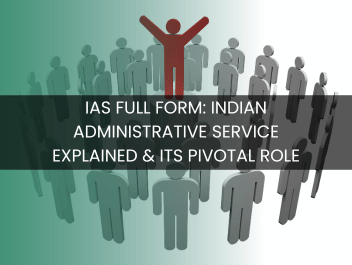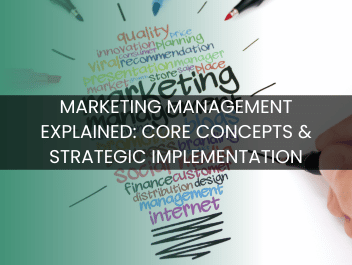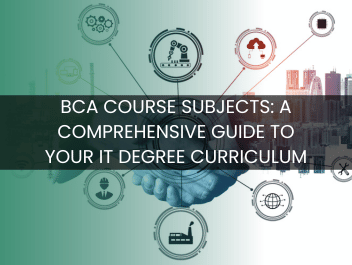
15 Essential Managerial Interview Questions for Freshers to Prepare
In the competitive job market, freshers aiming for managerial positions often find themselves at a crossroads—lacking real-world experience yet expected to demonstrate leadership potential. Understanding and excelling in managerial interview questions for freshers can bridge this gap, paving the way for career advancement. Interviewers deeply probe into your management philosophies, decision-making skills, and ability to handle team dynamics to gauge your aptitude for future leadership roles.
As a newbie stepping into your first managerial role, mastering the nuances of managerial round interview questions is key to making a positive impression. From understanding management styles to decision-making with incomplete information, the spectrum of manager job interview questions might seem daunting but is an opportunity to showcase your readiness to lead. These interviews are less about what you know and more about how you approach and solve real-world managerial problems.
This article from mindgroom.in will explore 15 essential manager round interview questions designed to prepare freshers for their first big break. We'll dive into sample managerial round interview questions for freshers, providing insights and suggested managerial round interview questions with answers that can guide you. Whether you're preparing for the hiring manager round or you're keen to understand managerial round interview questions for experienced professionals, this comprehensive guide ensures you're equipped for success.
Table of Content
- 1. 15 Essential Managerial Interview Questions for Freshers to Prepare
- 2. Introduction: Preparing for Success
- 3. Managing Remote Teams: Overcoming Distance Challenges
- 4. Handling Underperformance: Addressing Issues Constructively
- 5. Decision-Making with Incomplete Information: Your Process
- 6. Leadership vs. Management: Distinguishing Your Role
- 7. Communication Best Practices: Ensuring Clarity
- 8. Fostering a Collaborative Environment: Encouraging Teamwork
- 9. Adapting to Industry Trends: Staying Ahead
- 10. Crisis Management: Navigating Emergencies
15 Essential Managerial Interview Questions for Freshers to Prepare
Stepping into a managerial role involves a lot of responsibility. Freshers often face a unique set of managerial interview questions tailored for their level of experience. Here's a list to help you prepare for your hiring manager round:
- How
do you prioritize tasks?
Understand how to balance urgent and important tasks.
- Describe
your leadership style.
Be honest and relate it to past experiences.
- Can
you give an example of effective communication?
Highlight scenarios showing your communication skills.
- Discuss
a time you solved a problem.
Use the STAR method to structure your answer.
- How
do you handle constructive feedback?
Share how you’ve used feedback for growth.
- What
motivates your team?
Reflect on what drives team success.
- How
do you promote professional development?
Emphasize on encouraging growth and learning.
- How
do you adapt to a new company culture?
Discuss adaptability and smooth transitions.
- Talk
about a leadership challenge you overcame.
Focus on your leadership abilities.
- Describe
your approach to remote team management.
Mention your regular check-ins and transparent communication.
- How
do you align personal and company goals?
Illustrate with examples.
- What
is your strategy for team collaboration?
Stress on interpersonal skills.
- Explain
a decision you regret and what you learned.
Showcase emotional intelligence.
- What
are your long-term career objectives?
Align it with the dream jobs you aspire to.
- Share
a time you had to give negative feedback.
Emphasize your constructive approach.
Being well-prepared for your managerial round interview questions with answers is key. With these common interview questions and insights, you’re set to impress the hiring manager.
Introduction: Preparing for Success
Preparing for managerial interview questions for freshers is key to securing your dream job. Whether you are navigating through a managerial round interview for the first time or exploring managerial round interview questions for experienced candidates, understanding the dynamics of such interviews is crucial. A typical manager job interview may involve questions designed to assess your leadership abilities, decision-making, and problem-solving skills. It’s essential to practice responses to managerial round interview questions with answers formulated using the STAR method. This approach helps you articulate your accomplishments and how you tackle challenges.
Effective preparation for the hiring manager round entails understanding common interview questions and practicing answers that highlight your emotional intelligence and professional growth. Cultivating leadership skills and communication skills is also important, as these soft skills will support a smooth transition into a managerial role.
Here are some common areas to focus on:
- Leadership Style: Demonstrate effective communication and
leadership abilities.
- Problem-Solving Skills: Showcase your decision-making process and
adaptability.
- Personal Development: Discuss your commitment to continuous learning and
self-improvement.
Remember, preparation is the key to confidence. Practice regularly, and be proactive in seeking constructive feedback to refine your approach.
Understanding Management Styles: What is Your Approach?
Understanding different management styles is crucial in today's workplaces. One common question in managerial interviews is: "What is your management style?" This question helps hiring managers assess your leadership style and problem-solving abilities.
Here’s a quick overview of management styles:
- Autocratic: Decisions are made unilaterally, and effective communication is primarily directive.
- Democratic: Feedback is encouraged, promoting transparency and emotional intelligence.
- Transformational: Focus is on professional growth and motivation for change.
- Transactional: Emphasizes structure and rewards for tasks completed.
- Laissez-Faire: High trust in team autonomy, suitable for experienced teams or a remote team.
To articulate your style, reflect on past experiences. Consider using the STAR method to describe situations where your management style led to success. Highlight your communication skills, leadership abilities, and how you contribute to a company's culture. A clear understanding of management styles not only helps in interviews but aids in your professional development and smooth transition into a managerial role.
Conflict Resolution: Handling Disputes Effectively
Handling disputes in the workplace is crucial for maintaining a positive company culture. Effective communication and problem-solving skills play vital roles in resolving conflicts. Here are some useful strategies for conflict resolution:
- Identify the Issue: Clearly understand the root cause of the conflict. This step is essential for addressing the problem accurately.
- Open Dialogue: Encourage transparent communication between parties involved. This fosters understanding and paves the way for resolution.
- Listen Actively: Show empathy and listen carefully to all viewpoints. This helps in understanding different perspectives.
- Explore Solutions: Brainstorm potential solutions collaboratively. Encouraging participation ensures that everyone feels heard.
- Implement a Plan: Once a viable solution is agreed upon, implement it promptly. Regular check-ins can help track progress and ensure a smooth transition.
- Evaluate and Reflect: After resolving the conflict, evaluate the resolution process. Reflect on what worked and what could be improved.
Here's a concise list summarizing key conflict resolution strategies:
|
Strategy |
Description |
|
Identify the Issue |
Understand the root cause |
|
Open Dialogue |
Encourage transparent communication |
|
Listen Actively |
Empathize and understand perspectives |
|
Explore Solutions |
Collaborate on potential solutions |
|
Implement a Plan |
Execute the agreed solution |
|
Evaluate and Reflect |
Learn from the process for better future handling |
By mastering these techniques, managers can enhance their leadership skills and foster a harmonious work environment.
Task Prioritization: How Do You Decide What Comes First?
Task prioritization is crucial for effective time management and productivity. Here's how to decide what comes first:
- Urgency vs. Importance: Use the Eisenhower Box to distinguish tasks by urgency and importance. Focus on tasks that are both urgent and important.
- Deadlines: Note deadlines to ensure timely task completion. Tasks with closer deadlines should typically take precedence.
- Impact: Assess the potential impact of each task. Prioritize those contributing more to your goals or the success of a project.
- Effort Required: Consider the effort each task demands. High-priority tasks might require more effort but contribute significantly to outcomes.
- Dependence: Identify tasks dependent on others. Completing these early can help avoid bottlenecks.
Here's a simple table for task prioritization:
|
Priority Level |
Criteria |
|
High |
Urgent, Important, High Impact |
|
Medium |
Important, Less Urgent |
|
Low |
Low Impact, Not Urgent |
Following these steps can help streamline your task management, leading to improved efficiency and a smoother workflow. For further insights on professional development and time management skills, visit mindgroom.in.
Delegation Techniques: Maximizing Team Productivity
Effective delegation is crucial for maximizing team productivity. It empowers team members, fosters professional growth, and clarifies roles. Here are some key delegation techniques:
- Clearly Define Tasks: Ensure tasks are well-defined and match team members' skills and interests. This capitalizes on individual strengths and enhances efficiency.
- Prioritize Objectives: Identify and prioritize critical tasks. This helps focus effort where it produces the most impact.
- Establish Deadlines: Set realistic deadlines to manage time effectively and keep projects on track.
- Provide Resources and Support: Equip the team with necessary resources, training, and support to complete tasks successfully.
- Regular Check-ins: Schedule routine meetings to monitor progress, provide feedback, and address issues promptly.
- Encourage Feedback: Foster an environment where team members feel comfortable providing constructively feedback. This builds trust and opens channels for transparent communication.
Table: Benefits of Effective Delegation
|
Benefit |
Description |
|
Empowered Team |
Increases autonomy and initiative. |
|
Enhanced Skills |
Allows team members to develop new skills. |
|
Improved Efficiency |
Streamlines workflow and reduces bottlenecks. |
|
Problem-solving Abilities |
Boosts creativity and problem-solving skills. |
Using these delegation techniques, managers can optimize team performance and achieve organizational goals efficiently.
Managing Remote Teams: Overcoming Distance Challenges
Managing remote teams can be challenging, but effective strategies can create smooth operations and strong communication. Understanding these challenges is essential for a successful remote team environment.
Key Strategies for Managing Remote Teams:
- Transparent Communication: Foster an open dialogue among team members. This builds trust and mitigates misunderstandings.
- Regular Check-ins: Schedule consistent meetings to discuss progress and address concerns.
- Leveraging Technology: Use collaborative tools for seamless communication and task management.
- Setting Clear Expectations: Define roles and responsibilities. This ensures everyone understands their tasks and deadlines.
- Encouraging Professional Growth: Offer opportunities for training and skill development to motivate team members.
|
Challenge |
Strategy |
|
Communication |
Transparent Communication |
|
Collaboration |
Leveraging Technology |
|
Accountability |
Setting Clear Expectations |
Overcoming distance challenges involves effective communication skills, clear goal-setting, and fostering professional development. With these strategies, managing remote teams can be productive and rewarding. Prioritize team dynamics and maintain a vibrant company culture to ensure success.
Motivating Staff: Strategies to Inspire Your Team
Motivating staff is crucial for fostering a productive and engaged workplace. Here are some effective strategies to inspire your team:
1. Set Clear Goals: Establishing clear objectives helps employees understand their roles and how their work contributes to the company’s success.
2. Offer Regular Feedback: Constructive feedback ensures that staff know their strengths and areas for improvement, aiding professional growth.
3. Cultivate a Positive Work Environment: Encouraging a positive company culture fosters teamwork and communication skills, enhancing overall morale.
4. Recognize Achievements: Acknowledging efforts and achievements boosts motivation, reinforcing commitment and leadership style.
5. Provide Professional Development Opportunities: Supporting continuous learning and development empowers employees and promotes professional advancement.
6. Encourage Work-Life Balance: Implementing flexible work arrangements, such as remote team setups, helps maintain motivation by balancing personal and professional lives.
Table: Key Strategies for Motivation
|
Strategy |
Benefit |
|
Set Clear Goals |
Enhances role clarity and purpose |
|
Offer Regular Feedback |
Facilitates growth and improvement |
|
Cultivate a Positive Environment |
Boosts teamwork and morale |
|
Recognize Achievements |
Increases motivation and reinforces commitment |
|
Professional Development Opportunities |
Empowers and promotes continuous learning |
|
Encourage Work-Life Balance |
Maintains motivation through personal and professional harmony |
These strategies help create a supportive and motivating work environment, essential for your team's success.
Handling Underperformance: Addressing Issues Constructively
Handling underperformance requires tact and constructive methods. Addressing Issues Constructively involves several strategies:
- Clear Communication: Open and transparent communication is vital. Explain expectations and areas needing improvement.
- Regular Check-ins: Schedule consistent meetings to discuss progress and challenges. Regular dialogue fosters a supportive environment.
- Set Clear Goals: Define specific, achievable targets. This provides a roadmap for improvement.
- Provide Constructive Feedback: Use the STAR method (Situation, Task, Action, Result) to deliver feedback. Focus on behavior and outcomes rather than personal attributes.
- Offer Professional Development: Identify training opportunities or mentorship programs that can aid in skill enhancement.
- Emphasize Soft Skills: Encourage improvement in communication skills and emotional intelligence.
- Document Performance: Keep detailed records of discussions and improvements. This ensures accountability and measures progress.
- Create a Supportive Culture: Empower employees to seek help and admit to challenges without fear of negative repercussions.
A supportive and structured approach not only addresses underperformance but also enhances overall professional growth within the team.
Decision-Making with Incomplete Information: Your Process
Decision-making often requires acting without complete information. This process can be daunting, but clear steps can guide you through it effectively.
Steps for Decision-Making with Incomplete Information:
- Identify the Decision: Clearly define what the decision is about.
- Gather Available Information: Collect all accessible data and understand its limitations.
- Consider Alternatives: List all possible options based on the information you have.
- Weigh the Options: Evaluate the pros and cons of each alternative.
- Make the Decision: Choose the best option considering potential risks and benefits.
- Implement the Decision: Take action and monitor the outcomes.
- Review and Reflect: Analyze the results to learn and improve future decision-making.
|
Step |
Action |
|
Identify Decision |
Define the scope and purpose. |
|
Gather Information |
Collect what is available despite gaps. |
|
Consider Alternatives |
Brainstorm possible options. |
|
Weigh Options |
Analyze pros and cons. |
|
Make Decision |
Choose based on best-judged outcomes. |
|
Implement Decision |
Act on your choice. |
|
Review and Reflect |
Evaluate results and refine process. |
Effective decision-making with incomplete information demands adaptability, critical thinking, and a structured approach.
Leadership vs. Management: Distinguishing Your Role
Leadership and management are often used interchangeably, but they entail different roles. Understanding these differences is crucial for anyone preparing for managerial interview questions for freshers.
Leadership Attributes:
- Visionary Thinking: Leaders focus on setting and
communicating a compelling vision.
- Inspiring Change: They encourage innovation and inspire their team.
- Emotional Intelligence: Effective leaders exhibit strong emotional
intelligence and empathy.
Management Attributes:
- Task Orientation: Managers focus on planning,
organization, and execution.
- Process Improvement: They enhance efficiency through structured processes.
- Problem-Solving Skills: Technical and problem-solving skills are crucial.
It's vital for fresh candidates facing managerial round interview questions to understand these distinctions. Here’s a quick comparison:
|
Attribute |
Leadership |
Management |
|
Focus |
Vision and change |
Tasks and processes |
|
Skills Emphasized |
Emotional intelligence, inspiration |
Organization, problem-solving |
Preparing for manager job interview questions involves showcasing both leadership and management qualities. Emphasizing these will help you shine in hiring manager round interviews, setting the stage for a successful career trajectory.
Communication Best Practices: Ensuring Clarity
Effective communication is crucial in both personal and professional settings. To ensure clarity, one should focus on several best practices.
- Use Simple Language: Avoid jargon and complex terms. Simple words are often more effective.
- Organized Structure: Arrange information logically. It helps the audience understand your message.
- Active Listening: Pay attention to feedback. It ensures that the message is received and understood.
- Ask Questions: Encourage questions to clarify doubts. It promotes transparent communication.
- Visual Aids: Use tools like charts and tables. They can simplify complex information.
- Regular Check-ins: Schedule these to clarify ongoing discussions. It also ensures alignment.
- Concise Messages: Keep messages short and to the point. Too many words can lead to confusion.
Consider the following table for a succinct summary:
|
Best Practice |
Benefit |
|
Simple Language |
Prevents misunderstandings |
|
Organized Structure |
Enhances comprehension |
|
Active Listening |
Confirms understanding |
By following these practices, communication becomes more effective and ensures clarity in every interaction.
Fostering a Collaborative Environment: Encouraging Teamwork
Fostering a collaborative environment is key to encouraging teamwork in any organization. A collaborative environment not only enhances team morale but also boosts productivity. Here are some strategies to achieve this:
- Emphasize Open Communication: Encourage team members to share ideas openly without judgment. Transparent communication helps build trust and understanding.
- Define Clear Roles: Ensure everyone understands their responsibilities. Clear roles prevent confusion and overlap in duties, leading to smoother collaboration.
- Set Collective Goals: Establishing shared objectives can motivate team members to work together more effectively to achieve common goals.
- Regular Check-ins: Hold consistent meetings to keep everyone aligned and address any issues promptly.
- Encourage Diversity: Bring different perspectives by fostering a diverse team. Diversity encourages creative solutions and innovation.
Benefits of Collaboration:
|
Benefit |
Description |
|
Improved Problem-Solving |
Diverse perspectives lead to innovative solutions. |
|
Enhanced Creativity |
A mix of ideas fosters creativity and new approaches. |
|
Increased Productivity |
Working together can streamline processes. |
Creating a collaborative environment takes effort but pays off in a more motivated and harmonious team.
Adapting to Industry Trends: Staying Ahead
Adapting to industry trends is vital for staying ahead in today's fast-paced business world. Companies must remain agile and responsive to shifts in the market to ensure their continued growth and success.
Key Steps to Stay Ahead:
- Continuous Learning: Encourage employees to engage in professional development and training sessions to boost their skills and knowledge about new trends.
- Regular Check-ins: Implement frequent check-ins with teams to discuss ongoing projects and upcoming industry changes.
- Transparent Communication: Foster a culture of open communication to ensure all team members are informed of any changes that could impact the business.
- Market Research: Regularly conduct market analyses to gather insights on emerging trends and customer preferences.
- Technology Integration: Stay updated with the latest technological advancements and integrate them into business operations to enhance efficiency.
Example:
|
Trend |
Action Plan |
|
Remote Work Growth |
Invest in remote tools and software |
|
Green Technologies |
Implement sustainable practices |
|
Digital Marketing |
Increase investment in online platforms |
By keeping a keen eye on industry trends and proactively adapting strategies, companies can not only survive but thrive in a competitive environment.
Crisis Management: Navigating Emergencies
Crisis management is crucial for navigating emergencies effectively. It involves strategies and
Looking For Job Satisfaction on the long run?
Please feel free to contact our experts
Call to ask any question
+91-9319336222Monday to Saturday
(9:00 AM to 8:00 PM)Resent Blogs
10 Things to Do During an Interview to Impress Your Future Employer
Learn MoreCrafting Your Personal Narrative: A Guide to Writing About Yourself
Learn MoreTop 10 Essential Interview Questions and Expert Answers for 2025
Learn MoreAce Your Next Interview: Essential Questions and Expert Answers for 2025
Learn MoreFirst-Time Manager Interview: Crucial Questions and Strategies for Success
Learn More150 Essential General Knowledge Questions for Interviews in 2025
Learn MoreMaster the Google Interview: Strategies for Success in 2025
Learn MoreHow Can You Describe Yourself Professionally? 5 Key Strategies You Need to Know
Learn MoreMastering the Art of How to Take Interview: Essential Techniques for Success
Learn More25 Essential HR Interview Questions and Answers PDF You Can't Ignore
Learn More7 Tips to Ace Your HR Screening Round and Land Your Dream Job
Learn More10 Essential Tips for Acing Your Interview Exam
Learn More5 Unique Interview Format Examples to Stand Out in Your Next Interview
Learn More5 Powerful Techniques for a Memorable Interview Introduction
Learn MoreMaster Your Next Interview with These Top Interview Preparation Apps
Learn MoreMastering the Art: Top Interview Questions for 12th Class Students
Learn More7 Must-Know Interview Questions for Freshers to Ace Your Job Hunt
Learn MoreMastering Interview Questions for HR Position with Answers: Strategies for Success
Learn More12 Essential Interview Questions for Recruiter Position You Should Prepare For
Learn More10 Must-Know Interview Questions UK Employers Love to Ask
Learn More10 Creative Interview Writing Examples to Spark Your Imagination
Learn More15 Essential Managerial Interview Questions for Freshers to Prepare
Learn More15 Unique Marketing Interview Questions You Haven't Prepared For
Learn More7 Key Strategies for a Successful Mock Interview Session
Learn MoreThe Ultimate Guide to Model Interview Questions: What You Need to Know
Learn More5 My Self Question Exercises to Unlock Your True Potential
Learn More10 Normal Questions That Can Spark Deep Conversations
Learn More15 Essential Personal Interview Questions for Freshers to Ace Your Next Job
Learn More10 Essential Phone Interview Questions You Can’t Afford to Ignore
Learn More15 Essential Sales Interview Questions and Answers for Freshers
Learn More7 Key Situational Interview Questions Every Employer Should Ask
Learn More15 Essential Software Developer HR Interview Questions You Need to Prepare For
Learn MoreMastering the Technical Interview: Essential Questions and Answers
Learn MoreTop Strategies for Responding to Tell Me About Yourself in a Student Interview
Learn MoreTop 10 Interview Questions and Expert Answers
Learn MoreMastering the Art of Interviewing: 50 Tough Questions and Smart Answers
Learn MoreHow to Ace Your Next Mock Interview: Tips and Strategies for Success
Learn MoreYour Ultimate Guide: 60 Insightful Questions to Ask Interviewers
Learn MoreCrafting the Perfect Response to Why Do You Want This Job?
Learn MoreUnique Ways to Tackle the Question Why Should We Hire You?
Learn MoreWhy Should We Hire You? - Top 10 Answers for Customer Service Roles
Learn MoreMastering the Art of Discussing Work Experience in Interviews
Learn MoreMastering Your Sales Interview: 50 Essential Questions and Answers
Learn MoreCareer Paths After 12th Commerce: Your Future Starts Here
Learn MoreExplore One-Year Courses After 12th for Non-Medical Students
Learn MoreQuick Career Paths: 2-Year Degree Courses After 12th for Fast-Track Success
Learn MoreComprehensive Guide: Courses After 12th Commerce
Learn MoreTop 10 Lucrative Courses to Consider After Completing Engineering
Learn MoreAdvancing Your Career: Top Choices After B.Tech in 2025
Learn MoreExplore Your Future: After CET Exam Which Course is Best for Aspiring Professionals?
Learn More5 Reasons Why After Inter CEC, Choosing the Right Course is Crucial
Learn MoreAfter PUC Which Course is Best for Aspiring Engineers? Explore Your Options!
Learn MoreUnlocking Your Future: Best Arts and Science Courses After 12th for 2025
Learn MoreWhy a Bachelor Degree in Commerce is Your Pathway to Success
Learn More15 Best Career Courses to Boost Your Earning Potential in 2025
Learn MoreEmerging Career Fields for 2025: What You Need to Know
Learn MoreExploring In-Demand Career Paths After 12th: Science, Arts, Commerce
Learn More15 Lucrative Science Careers You Should Consider
Learn MoreHigh-Paying Career Paths for Girls After 12th Commerce
Learn MoreTop 10 High Salary Career Courses After 12th Biology
Learn MoreTop 10 High-Paying BSc Specializations for 2025
Learn MoreExploring the Future: Innovative Career Paths for B.Tech Graduates in 2025
Learn MoreComprehensive Guide to B.Tech Specializations for MPC Graduates
Learn MoreUnlocking Your Potential: The Ultimate B Tech Job List for 2025
Learn MoreB.Tech Salary Insights: How Much Can You Earn Per Month?
Learn MoreEssential Business Courses After 12th: Your Guide to a Successful Career
Learn MoreHow Commerce Students Can Transition to BSc IT
Learn MoreExploring Career Paths After 12th: Your Guide to Success in 2025
Learn MoreCertainly! Here are 10 additional title ideas inspired by the list you provided
Learn MoreExploring Career Paths After Engineering: Your Guide to the Future
Learn MoreThe Ultimate Guide to Career Options Post-High School Graduation
Learn MoreDiscover the Top 10 Chemistry Courses After 12th That Lead to High-Paying Jobs
Learn MoreExplore the Best Diploma and Certificate Programs After 12th Commerce
Learn MoreCareer Paths for Computer Science Graduates: Top Opportunities to Explore
Learn MoreExplore Top Courses After 12th: Your Path in Science, Arts, or Commerce
Learn MoreTop 10 Courses After 12th Commerce for a Successful Career
Learn MoreTop Paying Professional Courses After 12th for Commerce Students
Learn MoreEmerging Career Paths After 12th Commerce Without Maths
Learn MoreExploring Career Paths After 12th Science: A Complete Guide
Learn MoreComprehensive Guide to Courses and Career Paths after 12th Grade
Learn MoreEmerging Career Paths in India: What to Expect in 2025
Learn MoreTop Diploma Paths for Students After Completing 12th Science
Learn MoreTop 15 Easiest High-Paying Jobs to Pursue in India by 2025
Learn MoreNavigating Your Future: Easy Degree Options After 12th
Learn MoreExploring Top Engineering Branches After 12th: A Comprehensive Guide
Learn MoreExploring Advanced Studies: Top Entrance Exams for Engineering Graduates
Learn MoreMBA Salary Insights: Top Packages and Compensation Trends in India
Learn MoreTop 15 Lucrative Careers in India for 2025
Learn MoreTop 10 High-Paying Jobs for Commerce Graduates Without Maths
Learn MoreTop 10 High Salary Courses After 12th PCB for Future Success
Learn MoreHigh-Earning Courses to Pursue After 12th Science in 2025
Learn MoreHigh Paying Career Paths for BiPC Students: Top 10 Courses to Consider
Learn MoreExploring High-Paying Engineering Degrees for the Future
Learn MoreExploring Integrated Courses After 12th: A Comprehensive Guide for Students
Learn MoreExploring Career Prospects: What Can You Do with a BBA Degree?
Learn MoreTop 15 In-Demand Professional Courses for Commerce Graduates in 2025
Learn MoreExploring Lucrative Job Paths for BBA Graduates in 2025
Learn MoreMBA Full Form Explained: Master of Business Administration & Its Strategic Career Value
Learn MoreBBA Full Form: The Definitive Guide to BBA Degrees, Admissions, & Career Paths
Learn MoreBCA Full Form Explained: Your Complete Guide to the Degree, Admission & Career Scope
Learn MoreIAS Full Form: Indian Administrative Service Explained & Its Pivotal Role
Learn MoreMBBS Full Form: Unraveling the Meaning Behind a Doctors Qualification
Learn MoreUPSC Full Form: Union Public Service Commission and Its Vital Role
Learn MoreBSc Full Form: Bachelor of Science & What It Means for Your Future
Learn MoreITI Full Form: What Exactly is Industrial Training Institute?
Learn MoreLLB Full Form: Your Ultimate Guide to Bachelor of Laws, Eligibility & Career Scope
Learn MoreIs There a True Computer Full Form? Unpacking the Popular Acronym
Learn MoreB.Tech Full Form Unpacked: Meaning, Scope, and Why It Matters for Your Career
Learn MoreIIT Full Form: Unveiling the Indian Institute of Technology and Its Legacy
Learn MoreMCA Full Form Revealed: Master of Computer Applications & Its Significance
Learn MoreIIT Full Form: Indian Institute of Technology – Understanding Its Legacy, Campuses, and Global Standing
Learn MoreYour Complete Guide to Becoming a Veterinarian: Education, Specialties & Career Paths
Learn MoreBSc Degree: Your Complete Guide to Courses, Careers, and Future Prospects
Learn MoreB.Com Full Form Unveiled: What Bachelor of Commerce Truly Means
Learn MoreBAMS Full Form: Bachelor of Ayurvedic Medicine and Surgery — Unpacking Its Meaning & Career Scope
Learn MoreWhat is a Polytechnic? Your Complete Guide to Courses, Admissions & Career Paths
Learn MoreSSC GD Constable Exam News 2025-26: Latest Updates on Vacancies, Dates & Application
Learn MoreHow to Choose the Best Veterinarian for Your Pet: A Comprehensive Guide
Learn MoreAir Hostess 2026: Your Complete Roadmap to Landing the Dream Job
Learn MoreUnlocking Your Future: The Ultimate BSc Degree Guide (Courses, Careers & Admissions)
Learn MoreCMA Full Form: Certified Management Accountant (Global Standard Explained)
Learn MoreNACH Full Form Explained: What It Is & Why It Matters in Banking
Learn MoreThe Modern Anthropologist: Understanding Their Role, Impact, and Diverse Specializations
Learn MoreBBA: Your Ultimate Guide to Course Details, Admission, Fees, and Future Career Prospects
Learn MoreBDS Full Form Unpacked: Your Essential Guide to Dentistry Courses, Admissions & Career Scope
Learn MoreBHMS Full Form Revealed: Your Complete Guide to Bachelor of Homeopathic Medicine & Surgery
Learn MoreB.Tech Admissions 2026: Your Complete Guide to Courses & Eligibility
Learn MoreCFA Full Form: Understanding the Chartered Financial Analyst Designation
Learn MoreMerchant Navy Salary in India: Unveiling Pay Scales by Rank & Experience
Learn MoreTS EAMCET 2026: Official Notification, Exam Dates & Application Guide
Learn MoreVITEEE 2026: Full Guide to Application, Dates, Syllabus & Preparation
Learn MoreBMS Full Form: Unveiling Bachelor of Management Studies & What it Entails
Learn MoreB.Sc. Computer Science: Your Complete Guide to Courses, Careers & Eligibility
Learn MoreComputer Science Explained: From Basics to Advanced Concepts
Learn MoreWorlds Most Difficult Exams: A Definitive Ranking for 2025
Learn MoreUnion Public Service Commission (UPSC): All You Need to Know
Learn MoreBE Full Form Explained: What Bachelor of Engineering Means & Your Career Path
Learn MoreDMIT Full Form Revealed: Unpacking the Dermatoglyphic Multiple Intelligence Test
Learn MoreIndias Most Difficult Exams: The Ultimate Ranking for 2025
Learn MoreCLAT Full Form: Unveiling the Common Law Admission Test + Key Details
Learn MoreHighest Paying Jobs in India: Unveiling the Top 25 Roles & Their Lucrative Salaries
Learn MoreMA Full Form: Unpacking the Master of Arts Degree & What It Entails
Learn MoreMarketing Management Explained: Core Concepts & Strategic Implementation
Learn MoreBCA Course Subjects: A Comprehensive Guide to Your IT Degree Curriculum
Learn MoreCAT Exam Date 2026: When to Apply & Exam Schedule Revealed
Learn MoreCDS Full Form: Unveiling Combined Defence Services & Your Path to Commission
Learn MoreLab Technician Career Path: Duties, Skills, and Salary Guide
Learn MoreYour Complete Guide to Becoming a Successful Software Developer
Learn MoreAir Hostess Course Guide: Everything You Need to Know for Your Aviation Career
Learn MoreIntroduction: Navigating Your Path to Medical Excellence in India
Learn MoreTop Commerce Courses After 12th: Unlock Lucrative Career Paths
Learn MoreTop Industrial Training Institutes: Your Guide to Skilled Trades
Learn MoreUnderstanding Psychometric Tests: Your Definitive Guide & Free Examples
Learn MoreWhat Does a Surgeon Do? A Comprehensive Guide to the Profession
Learn MoreUG Explained: Your Ultimate Guide to Undergraduate Degrees & Admissions
Learn More10th Pass Govt Jobs 2026: Your Complete Guide to Apply & Secure Your Career
Learn MoreATMA: Your Complete Guide to the Management Admissions Test
Learn MoreBHMS Course Guide: Eligibility, Syllabus, Career Prospects & Top Colleges
Learn MoreUnlock Your Future: The Definitive Guide to Career Counselling
Learn MoreWhat Does a Clinical Psychologist Do? Your Comprehensive Guide
Learn MoreM.Tech Full Form: Master of Technology Explained (Meaning, Scope & Benefits)
Learn MoreRadiology Courses Explained: From Certificates to Masters Degrees
Learn MoreBSc Courses Explained: Full Guide to Specializations, Admissions & Career Paths
Learn MoreBSc Nursing Course: Admission Guide, Eligibility, Syllabus & Career Paths
Learn MoreBA LLB Full Form Explained: Unpacking Bachelor of Arts & Bachelor of Laws
Learn MoreTop BBA Colleges in India: Unveiling the Elite Institutions for Your Management Degree
Learn MoreUPSC CDS Exam Date 2026: Complete Schedule & Notification Details
Learn MoreTop Career-Focused Courses After 12th Grade: Unlock Your Future
Learn MoreExplore the World of Humanities Subjects: A Comprehensive Guide
Learn MoreIPU CET 2026: Complete Guide to Applications, Syllabus & Cutoffs
Learn MoreISI Full Form: Unveiling the Meaning & Importance of the Indian Standards Institute
Learn MoreJEE Advanced 2026 Exam Date: When Will the Exam Be Held?
Learn MoreJEE Main 2026 Result Date: When to Expect Session 1 & 2 Results
Learn MoreMCA Course Guide: Everything You Need to Know About Eligibility, Fees, and Admissions
Learn MoreMultimedia Explained: Your Complete Guide to Definition, Examples, and Impact
Learn MoreThe Ultimate Paramedical Courses List: Find Your Perfect Career Path
Learn MorePharm.D. Program: Your Complete Guide to Curriculum, Admissions & Outcomes
Learn MoreThe Ultimate Guide to Top IIT Colleges in India: Ranking, Admissions, and Courses
Learn MoreATC Full Form: Unpacking Air Traffic Control, Anatomy & More
Learn MoreB.Ed. Course Duration in India: Everything Aspiring Teachers Need to Know
Learn MoreB.Sc Psychology Degree: Your Guide to Admissions, Curriculum & Career Paths
Learn MoreB.Tech Computer Science: Your Complete Guide to Admission, Syllabus & Career Prospects
Learn MoreBDS Course Duration: How Long is Bachelor of Dental Surgery?
Learn MoreBFA Full Form Explained: What is a Bachelor of Fine Arts & Why it Matters
Learn MoreBiology Explained: What It Is, Its Core Concepts & Why It Matters
Learn MoreBPT Course: Your Complete Guide to Bachelor of Physiotherapy Admissions
Learn MoreBSc Nursing Full Form: What it Means and Why it Matters
Learn MoreThe Science Complete Guide: Best Courses & Career Paths Revealed
Learn MoreMaster Your Future: Your Complete Guide to 2026 Government Exams & How to Prepare
Learn MoreMPhil Explained: Your Complete Guide to the Master of Philosophy
Learn MoreBecome a Certified Stenographer: Your Complete Course Guide
Learn MoreTANCET 2026: Complete Exam Guide - Dates, Syllabus, and Preparation Tips
Learn MoreUpcoming Government Exams 2026: Full Schedule, Eligibility & Application Dates
Learn MoreWhat is CA? The Complete Guide to Chartered Accountancy and Your Career Path
Learn MoreAgnipath Scheme Explained: Eligibility, Benefits, Salary & Career Path
Learn MoreAFCAT 2026: Your Complete Guide to the Air Force Common Admission Test
Learn MoreConnet Us
Unlock Your Dream Career Potential - Get Expert Advice From Our Counselling Experts
























































































































_Thumbnail_.png )
_Thumbnail_.png )














_All_You_Need_to_Know_Thumbnail_.png )
























_Thumbnail_.png )



































